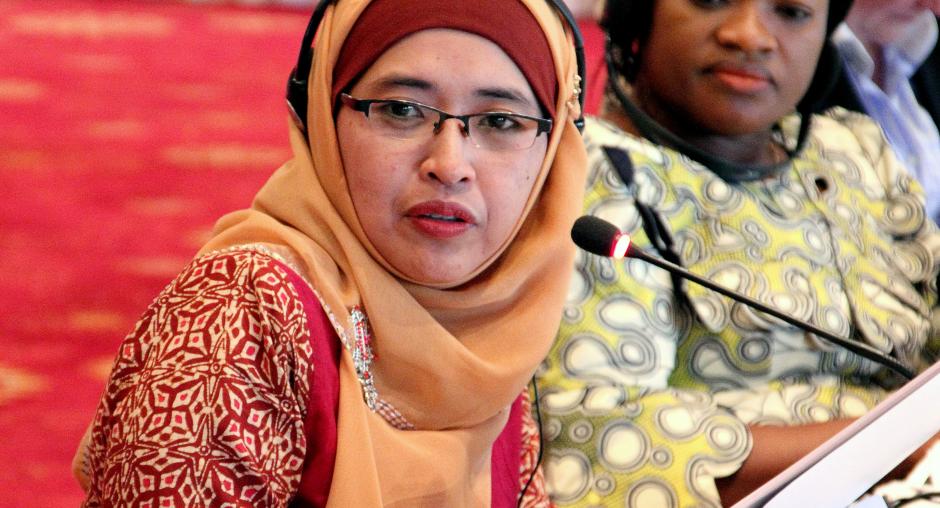Women should be fully and broadly involved in efforts to counter violent extremism and terrorist radicalization

The OSCE and the Global Counterterrorism Forum (GCTF) concluded on 14 May 2014 in Istanbul a joint workshop on women’s roles in countering violent extremism and radicalization that lead to terrorism. More than 20 speakers, including women members of national parliaments, women’s rights advocates and community leaders, shared their experience and insights with participants from governments and civil society from across the world.
“The global threat from violent extremism and radicalization that leads to terrorism is constantly and unpredictably evolving,” said Aşkın Asan, Turkey’s Deputy Minister of Family and Social Policies, in her opening address. “Women, as positive change agents, who develop their skills and make up the deficiencies of their educational level, will be helpful for not only their children and families but also their communities.”
Participants discussed how civil society organizations and public authorities can most effectively support women in safeguarding their families and communities against terrorist radicalization. Zuhro Murodova from the NGO Sisters against Violent Extremism (SAVE), presented a project to establish ‘Mothers’ Schools’ throughout Tajikistan to help build community resilience to violent extremism. “Women at the grassroots level need both awareness and confidence to be able to recognize when and how they can take action against violent extremism,” she explained.
Participants noted that women have an equally critical role to play in the public space, as elected officials, political figures, community leaders, or by working within the security sector and the criminal justice system.
“Women as religious and community leaders can effectively develop and disseminate within their communities messages to counter the narratives of terrorists and violent extremists,” stressed Inayah Rohmaniyah, Head of the Department of Sociology of Religion in the Sunan Kalijaga State Islamic University of Indonesia. “This workshop highlighted how much common ground there exists for us to build on in these efforts.”
Reinhard Uhrig, Deputy Head on Anti-Terrorism Issues in the OSCE Transnational Threats Department, said: “The full and broad involvement of women is essential to address the conditions conducive to terrorism and effectively prevent terrorism. In order to facilitate gender mainstreaming in counter-terrorism and counter-radicalization strategies, women’s presence among counter-terrorism professionals should be increased.”
This workshop is part of a joint OSCE-GCTF initiative aimed at developing policy recommendations for mainstreaming gender and including women in countering violent extremism and radicalization that lead to terrorism. The initiative is supported by Germany, Turkey and the United States. A second workshop will be organized in Vienna in October 2014 to further identify, discuss and formulate policy recommendations, which will be handed over to the GCTF Co-Chairs in December 2014.
